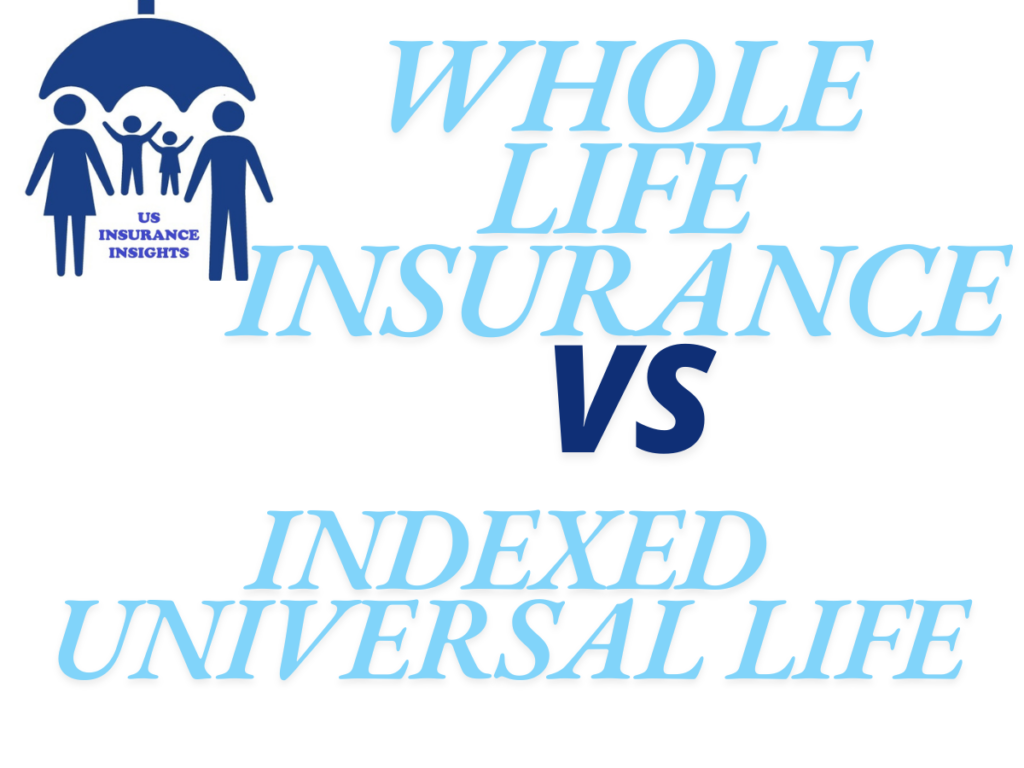Whole Life Insurance vs Indexed Universal Life When it comes to life insurance, making the right choice is crucial for securing your family’s future. Two popular options are Whole Life Insurance and Indexed Universal Life (IUL) Insurance. But which one fits your financial goals best? Let’s break them down in simple terms.
What is Whole Life Insurance? (Whole Life Insurance vs Indexed Universal Life)
Whole Life Insurance is a permanent life insurance policy that lasts your entire lifetime. It provides a guaranteed death benefit and has a cash value component that grows at a fixed rate over time. Unlike term life insurance, which expires after a set period, whole life ensures your loved ones are always protected.
Key Features of Whole Life Insurance: (Whole Life Insurance vs Indexed Universal Life)
Lifetime coverage – Your policy never expires as long as you pay your premiums.
Fixed premiums (Whole Life Insurance vs Indexed Universal Life)
Your monthly or annual payments remain the same throughout the policy.
Guaranteed cash value growth – The savings component of your policy grows at a predictable rate.
Dividends (in some policies) – Certain policies offer dividends that can be reinvested, taken as cash, or used to pay premiums.
Loan options – You can borrow against your policy’s cash value if needed.
Who Should Choose Whole Life Insurance?
Whole life insurance is great for those who:
Want a stable, low-risk investment with guaranteed returns.
Need lifelong coverage with no expiration date.
Prefer predictable premiums that won’t increase.
Plan to leave a legacy or inheritance for their family.
Want to build a cash reserve they can borrow from in emergencies.
Example: (Whole Life Insurance vs Indexed Universal Life)
Why Whole Life Insurance Works
Sarah, a 40-year-old mother of two, wanted to ensure her children would have financial security no matter what. She chose a whole life policy with a fixed premium. Over time, her cash value grew, allowing her to take a loan for her son’s college tuition while still maintaining her policy.
What is Indexed Universal Life (IUL) Insurance?
Indexed Universal Life Insurance is also a permanent life insurance policy, but it offers more flexibility and potential for higher cash value growth.
Key Features of Indexed Universal Life Insurance:
Flexible premiums – You can adjust how much you pay (within limits).
Adjustable death benefit – You may increase or decrease coverage based on your needs.
Cash value growth tied to an index – Your money grows based on stock market indexes (e.g., S&P 500), offering higher earning potential.
Downside protection – Even if the market dips, most policies guarantee that your cash value won’t lose money.
Tax-free withdrawals – You may access your funds without triggering immediate tax liabilities.
Who Should Choose Indexed Universal Life Insurance?
IUL is ideal for individuals who:
Want higher growth potential than a traditional whole life policy.
Need flexibility in their premiums and coverage.
Are comfortable with some market-based risks but still want protection.
Plan to use their cash value for future financial goals, such as retirement or education funding.
Prefer tax-advantaged income during retirement.
Example:
How Indexed Universal Life Benefits Investors
James, a 35-year-old entrepreneur, wanted life insurance that could also grow his wealth. He chose an IUL policy, allocating part of his cash value to an index fund. Over time, his policy’s value grew significantly, providing him with a flexible financial cushion for retirement.
Whole Life vs. Indexed Universal Life:
A Side-by-Side Comparison
Feature
Whole Life Insurance
Indexed Universal Life Insurance
Coverage Duration
Lifetime
Premiums
Fixed
Flexible
Cash Value Growth
Guaranteed, fixed rate
Tied to stock market index (with limits)
Market Risk
None
Moderate (with downside protection)
Death Benefit
Fixed
Adjustable
Tax-Free Loans
Yes
Best For
Stability, guarantees
Flexibility, higher growth potential
Which One Should You Choose?
The decision between Whole Life Insurance and Indexed Universal Life Insurance depends on your personal financial goals. Here’s a quick way to decide:
Choose Whole Life Insurance if you want certainty, guaranteed cash growth, and fixed premiums.
Choose Indexed Universal Life Insurance if you want flexibility, market-linked growth, and premium adjustments.
If you plan to use your cash value as a financial safety net, both policies offer borrowing options, but IUL has higher growth potential.
If you want tax advantages in retirement, both policies can help, but IUL often offers more flexibility in withdrawals.
Final Thoughts:
Making the Right Choice
Both Whole Life Insurance and Indexed Universal Life Insurance offer valuable benefits, but the right choice depends on your risk tolerance, financial plans, and future goals. If you want stability and guaranteed returns, Whole Life Insurance is the way to go. If you’re looking for growth opportunities with some flexibility, IUL might be a better fit.
Next Steps
Before making a decision, consider speaking with a financial advisor who can assess your unique situation and help you choose the best policy for your needs. Also, compare different policy providers to find the best rates and benefits for your lifestyle and long-term goals.

